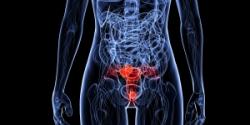Uterine Cancer Treatment in Israel

Most uterine cancers are endometrial, meaning they develop in the lining of the uterus. The disease most commonly develops after menopause. Treatment is most effective when the disease is found at an early stage.
Uterine cancer risk factors and symptoms
While the exact causes of uterine cancer aren’t yet known, obesity, family history, lynch syndrome, early menarche, endometrial hyperplasia, and history of estrogen-only HRT are considered risk factors. Symptoms include pelvic/lower abdomen pain, painful intercourse, presence of blood in urine, pain during intercourse, lack of appetite and weight loss and abnormal vaginal discharge.
Screening
- Lab tests, including tumor markers
- Revision of existing slides
- Gynecological oncologist’s consultation (it is likely that a biopsy will be performed during this exam)
- Histopathology
- PET CT
- Pelvic US Doppler scan
- Pelvic MRI scan (optional)
- Conclusive gynecological oncologist’s consultation
Treatment
Treatment program and costs will depend on the outcome of the investigation.
- In case the diagnosis is carcinoma or sarcoma of the uterus without distant metastases, you will be referred for a radical hysterectomy. Cost of operation includes 4 days of hospitalization.
- If metastases are detected, the primary treatment chemotherapy, with the possible addition of radiotherapy.

















 Toronto:
Toronto:  London:
London: 



